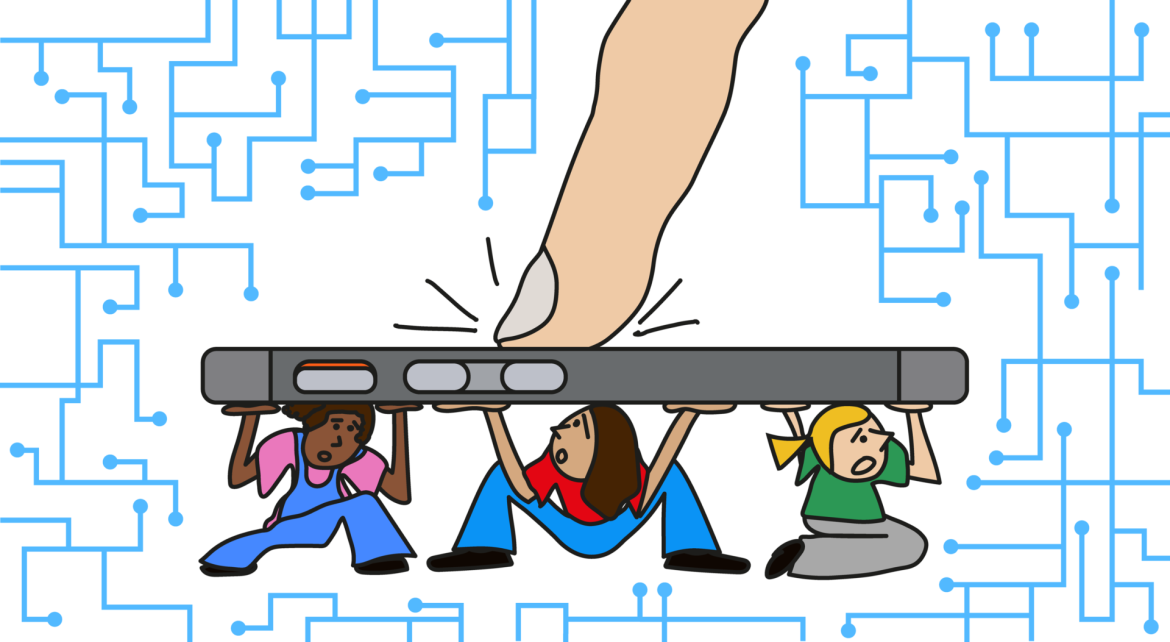‘Gender trolling’ is curbing women’s rights – and making money for digital platforms
MEDIA/ Online hate has become a tool of the right and a lucrative business. It’s driving women out of public life, putting democracy and human rights at risk
Listening to the resignation speech of Scotland’s first minister Nicola Sturgeon this week, it was impossible not to think of the all-too-similar words from former New Zealand prime minister Jacinda Ardern just a few weeks earlier.
Politicians are humans, too, as Sturgeon and Ardern reminded us, but the abuse women face online – greater and more vicious than that faced by male politicians – seem to dehumanize them, leaving some to wonder if the problem is a reflection of millennia-old misogyny or a technology issue.
Monetizing Misogyny; the study released this week by #ShePersisted; is the result of more than two years of research; into the patterns; and motives of gendered disinformation in several countries. It provides new insights; into this question as well as a clear answer; the problem lies less in the misogyny per se; than in its weaponization by dark actors – and monetization by digital platforms.
Interviews
We interviewed dozens of female leaders and experts in Hungary, India, Brazil, and Tunisia, analyzing a large volume of horrifying social media posts against them, and we documented how gendered disinformation campaigns – followed by avalanches of hate, threats, and abuse – have been deployed strategically by illiberal forces and authoritarian leaders to silence opposition and stifle calls for better governance.
As noted by Karla Mantilla; the online “gender trolling” of women; particularly political opponents and journalists; is becoming an increasingly common feature of rightwing movements; and must therefore be understood as a deliberate strategy to silence them and “keep them in their place”.
Examples
Let me give you some examples. When Manuela Davila ran for president against Jair Bolsonaro in Brazil in 2018; a photograph of her five-year-old daughter was shared on social media alongside a rape threat. Progressive; young; and vocal about gender equality; Davila had been a target of gendered disinformation; with multiple false stories about her posted online.
One such story claimed she went on a shopping trip to Miami to buy luxury goods while most Brazilians were suffering from deep financial distress – she never made that trip – and a Photoshopped image showed her wearing a T-shirt stating “Jesus is transgender” over a rainbow. Her T-shirt read: “Rebel!”.
In May 2022, Davila announced she would not run in last year’s general elections for several reasons, including the frequent attacks she and her family had suffered over the years.
In 2018, Priyanka Chaturvedi, a member of the Indian parliament, filed a complaint to the Mumbai police after receiving an online rape threat aimed at her 10-year-old daughter. Talking to me about her experience, Chaturvedi said: “Usually, it is the ‘IT cells’ – mostly unofficial but fully supported by the ruling party, that target women – especially women of the opposition.
These attacks are frequent in nature and well-orchestrated, and it is not unfamiliar for politicians, even cabinet ministers, to also engage or … initiate such kinds of attack.”
She said: “However, I refuse to just be a cog in the system and bow down to these cowards. I continue to persist despite the hate sent across my way, every day.”
But many others do not persist. Young women all over the world are being discouraged from speaking out or from considering a political career because of online misogyny and gendered disinformation.
Final Word
These are just two of many examples of how gendered disinformation and tech-facilitated gender-based violence have become more central tools weaponized by autocratic and illiberal political leaders to silence opposition, reverse women’s and minority rights, and undermine democracy.
Source: Guardian


